English
By the beginning of year 3, pupils should be able to read books written at an age-appropriate interest level. They should be able to read them accurately and at a speed that is sufficient for them to focus on understanding what they read rather than on decoding individual words. They should be able to decode most new words outside their spoken vocabulary, making a good approximation to the word’s pronunciation. As their decoding skills become increasingly secure, teaching should be directed more towards developing their vocabulary and the breadth and depth of their reading, making sure that they become independent, fluent and enthusiastic readers who read widely and frequently. They should be developing their understanding and enjoyment of stories, poetry, plays and non-fiction, and learning to read silently. They should also be developing their knowledge and skills in reading non-fiction about a wide range of subjects. They should be learning to justify their views about what they have read: with support at the start of year 3 and increasingly independently by the end of year 4.
- Plus Plan
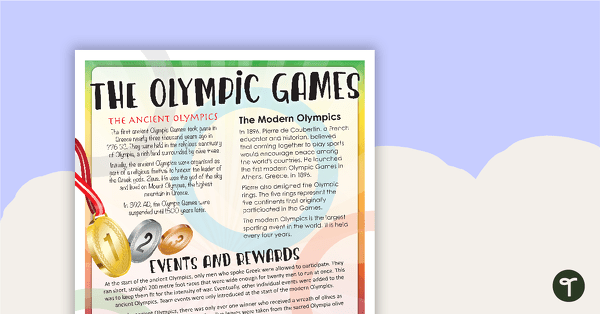
The Olympic Games - Comprehension Task
A comprehension task that encourages students to apply a range of comprehension skills when finding out interesting fun facts about the Olympics.
- Plus Plan
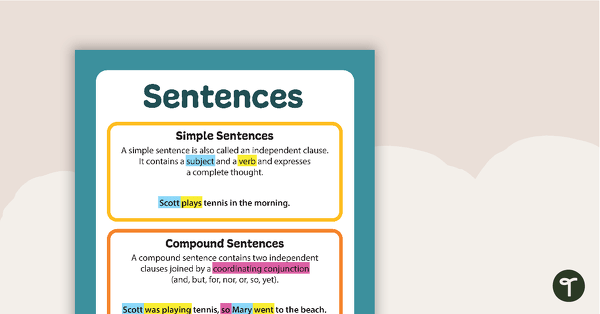
Simple, Compound and Complex Sentences Poster
Use this poster to show your students the attributes that make up simple, compound and complex sentences.
- Plus Plan
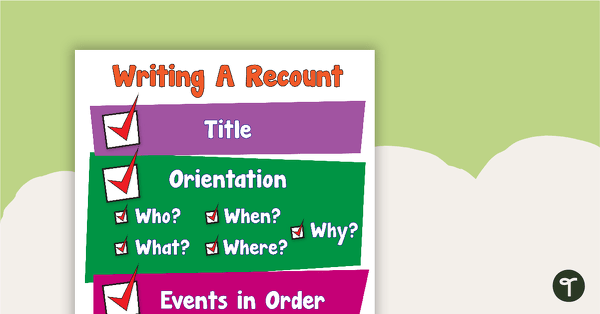
Writing A Recount Poster
Display this poster in your room as a visual reminder of the structure of a recount.
- Plus Plan
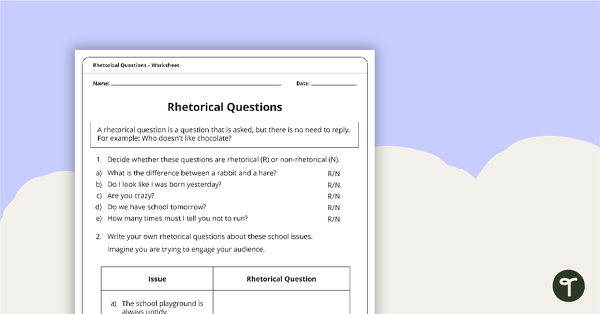
Rhetorical Questions Worksheet
A worksheet to consolidate students' understanding of rhetorical questions.
- Plus Plan
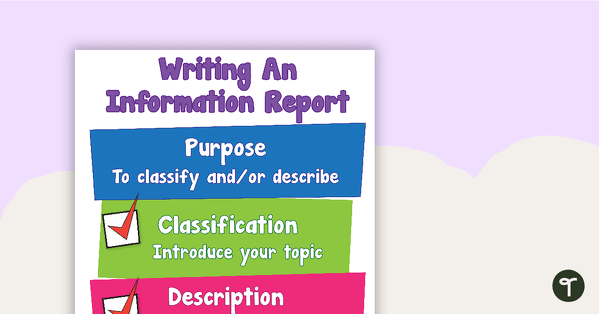
Writing An Information Report Poster
Display this poster in your room as a visual reminder of the structure of an information report.
- Plus Plan
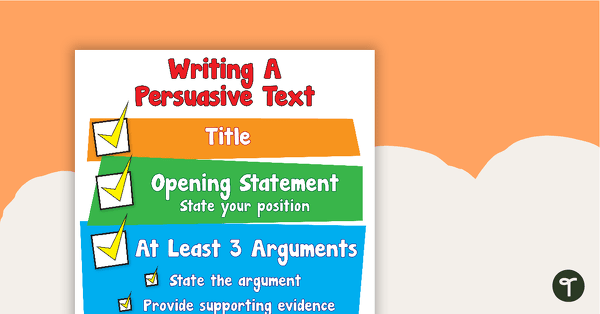
Writing A Persuasive Text Poster
Display this poster in your room as a visual reminder of the structure of a persuasive text.
- Plus Plan
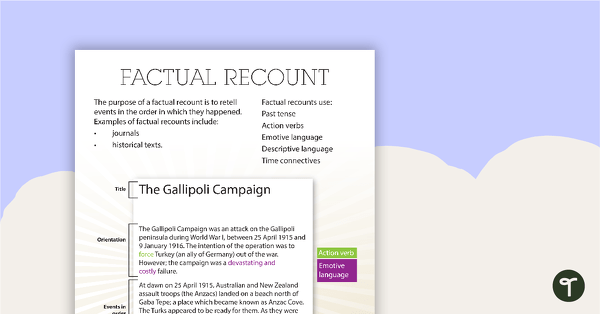
Factual Recount Text Type Poster With Annotations
A poster about the factual recount text type, including an annotated example.
- Plus Plan
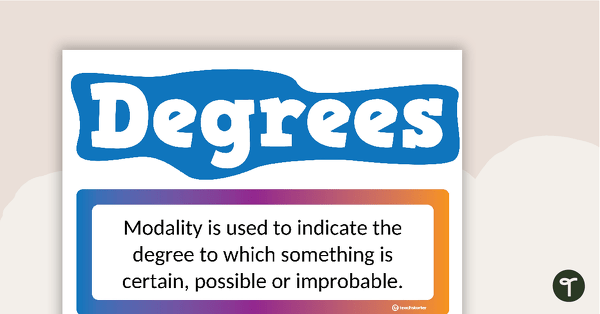
Modality Word Wall with Information
A set of 56 vocabulary words based on the degrees of modality in persuasive writing.
- Plus Plan
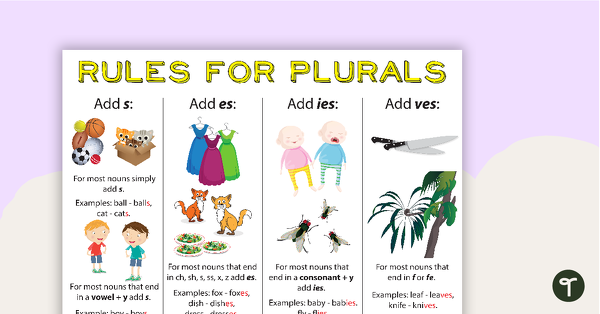
Rules for Plurals - s, es, ies, ves
A useful poster for explaining some of the different rules for plurals.
- Plus Plan
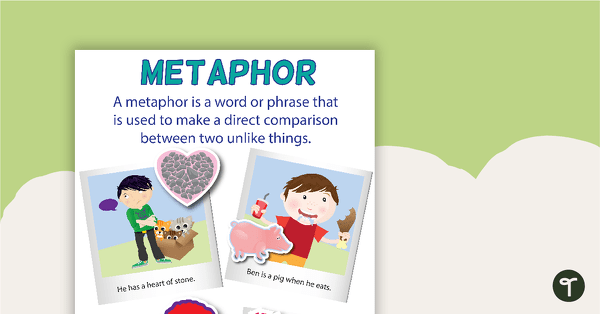
Metaphors Poster
A poster providing a definition and examples of metaphors.
- Plus Plan
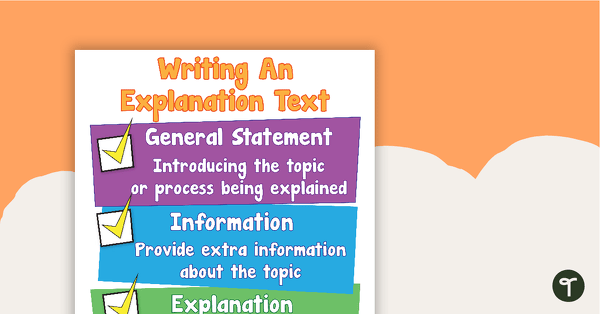
Writing An Explanation Text Poster
Display this poster in your room as a visual reminder of the structure of an explanation text.
- Free Plan
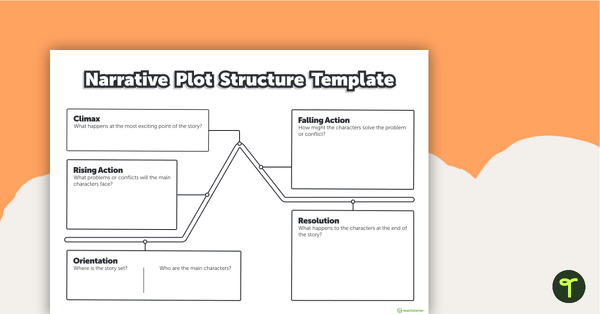
Narrative Plot Structure Story Mountain Template
Use a story mountain template to help your students write narrative texts.
- Plus Plan
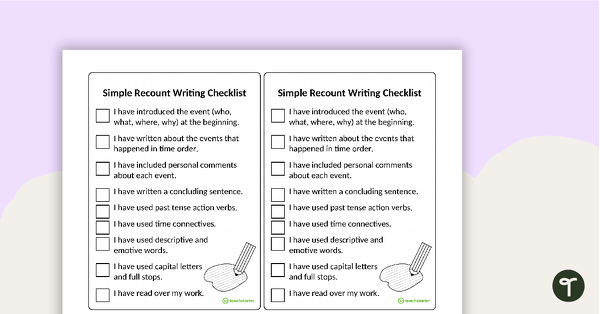
Simple Recount Writing Checklist
A checklist for students to use when proofreading and editing their recount writing.
- Plus Plan
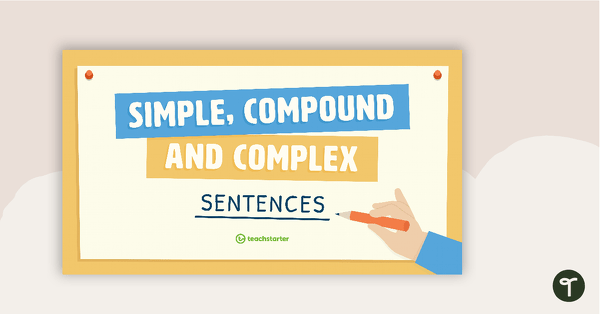
Simple, Compound and Complex Sentences PowerPoint
A 23 slide editable PowerPoint template which introduces the attributes of simple, compound and complex sentences.
- Plus Plan
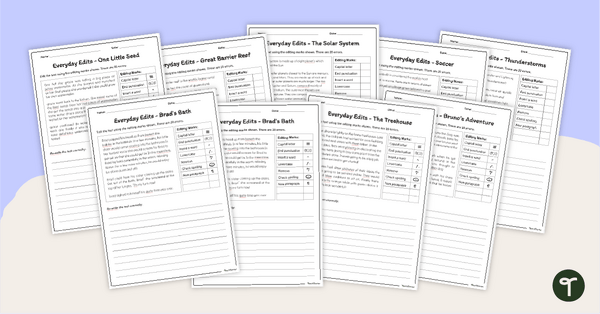
Editing Worksheets - Spelling, Grammar and Punctuation
Use these paragraph editing worksheets to add daily editing practice to your lesson plans.
- Plus Plan
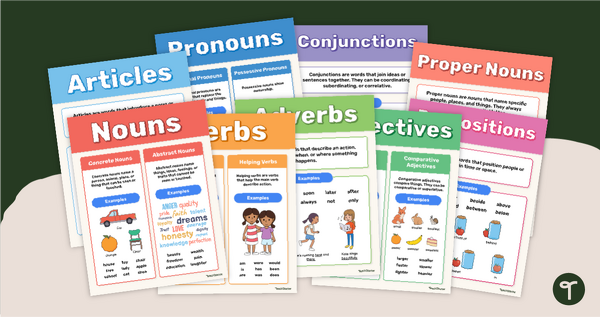
Nouns, Proper Nouns, Verbs, Adjectives, Adverbs and Conjunctions Posters
Enhance student understanding of the 8 parts of speech with these colourful, informative and easily-referenced grammar wall posters.
- Plus Plan
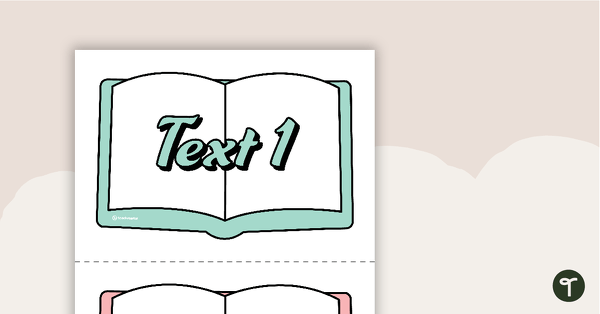
Narrative Writing Bump It Up Wall – Year 3
A visual display for your classroom to help students ‘bump up’ their narrative writing.
- Plus Plan
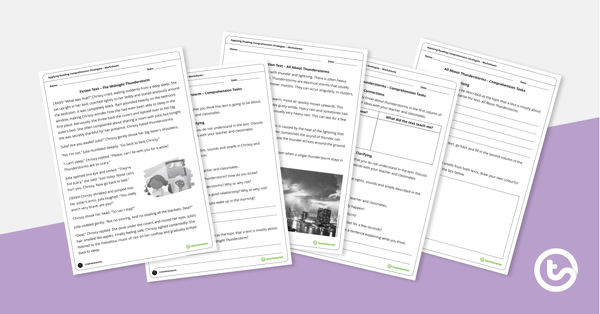
Applying Reading Comprehension Strategies Worksheets
A collection of worksheets to enable students to apply reading comprehension strategies.
- Plus Plan
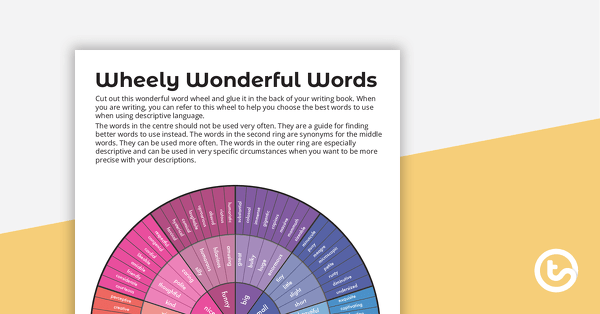
Wheely Wonderful Words – Overused Adjectives
A word wheel of synonyms and similar words that could be used instead of some commonly overused adjectives.
- Plus Plan
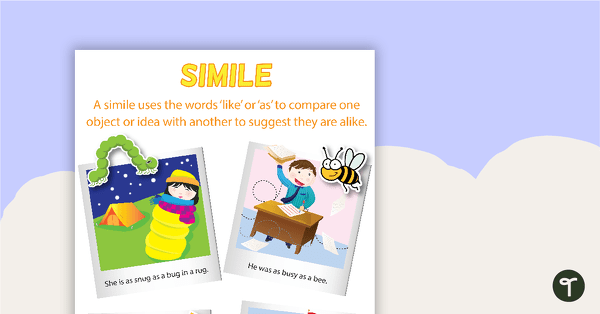
Similes Poster
A poster providing a definition and examples of similies.
- Plus Plan
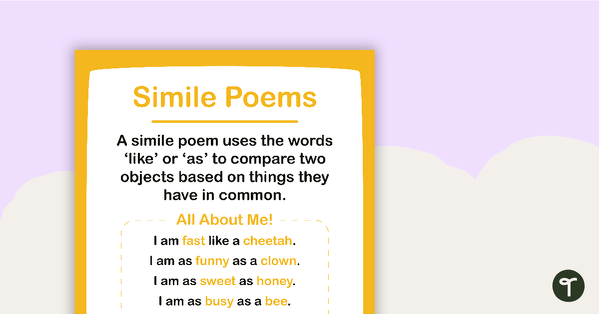
Simile Poems Poster
A poster providing a definition and example of a simile poem.
- Plus Plan
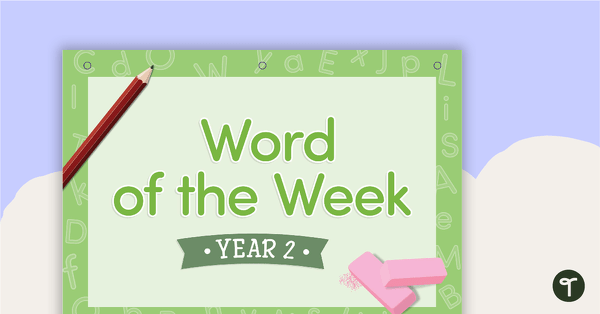
Word of the Week Flip Book - Year 2
A 43 page flip book for introducing new vocabulary to year 2 students.
- Plus Plan
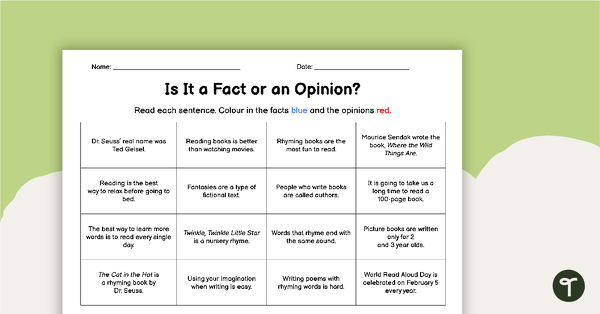
Is It a Fact or an Opinion? - Worksheet
A worksheet to practise identifying facts and opinions.
- Plus Plan
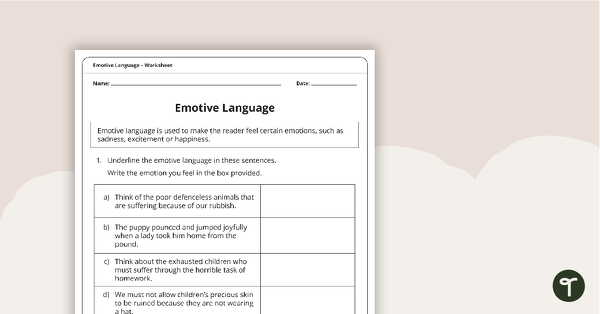
Emotive Language Worksheet
A worksheet to consolidate students' understanding of emotive language.
- Plus Plan
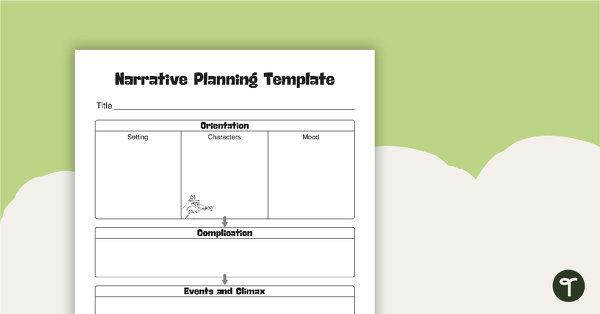
Narrative Writing Planning Template
A template for students to use when planning a narrative text.
- Plus Plan
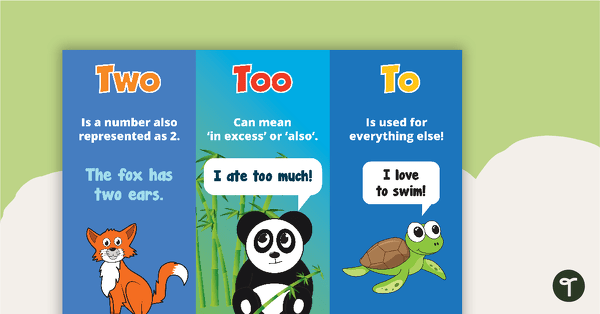
Two, Too and To Homophones Poster Original Design
An educational poster for the homophones two, too and to.
- Plus Plan
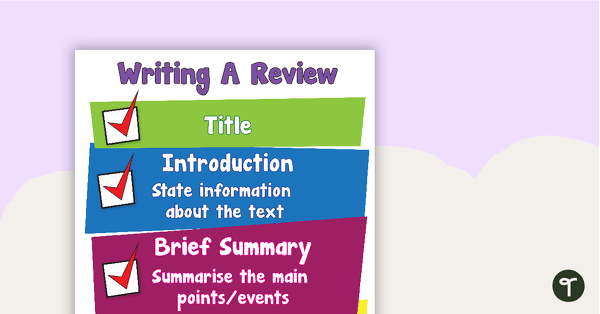
Writing A Review Poster
Display this poster in your room as a visual reminder of the structure of a review.
- Plus Plan
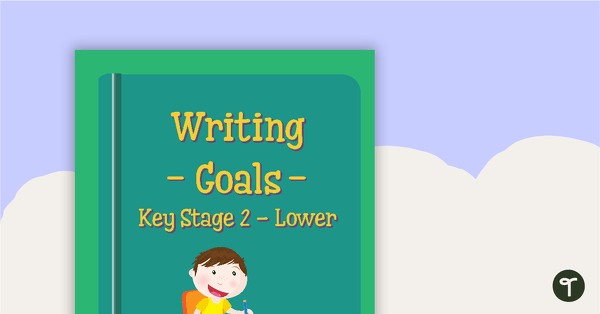
Goal Labels - Writing (Key Stage 2 - Lower)
Thirty-seven writing goal labels for middle primary.
- Plus Plan
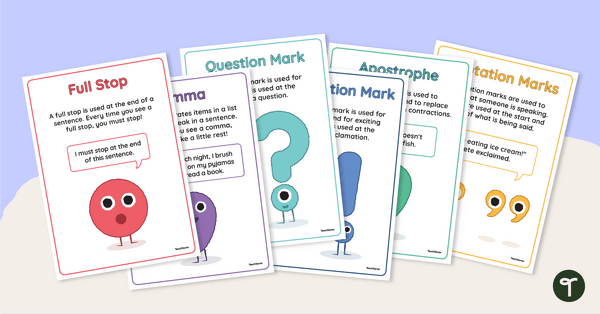
Punctuation Posters
Display this set of 6 punctuation posters in your classroom to remind your students of the most common punctuation marks and their uses.
- Plus Plan
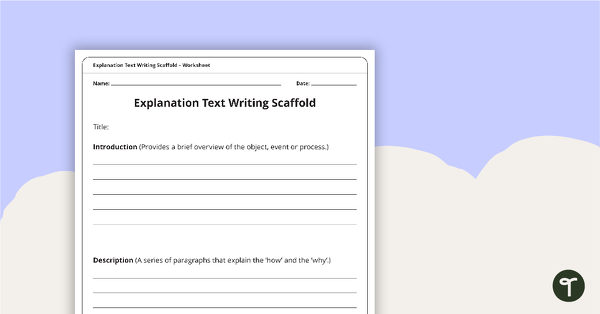
Explanation Texts Writing Scaffold
A scaffolding sheet that can be used to write an explanation text.
- Plus Plan
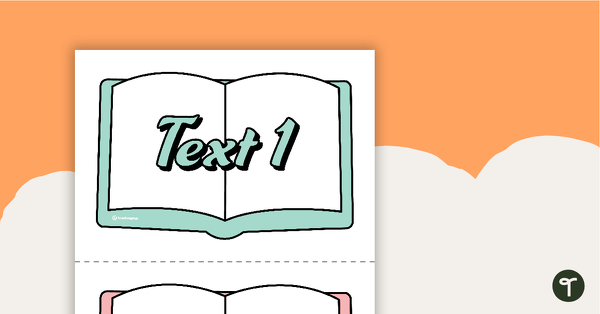
Narrative Writing Bump It Up Wall – Year 4
A visual display for your classroom to help students ‘bump up’ their narrative writing.
- Plus Plan
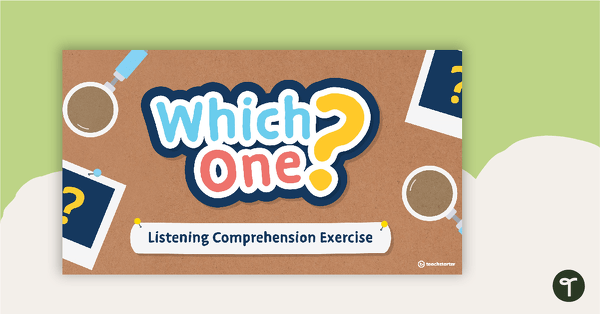
Which One? Listening Comprehension Exercise
An Interactive PowerPoint where students choose an image to match an aural description.